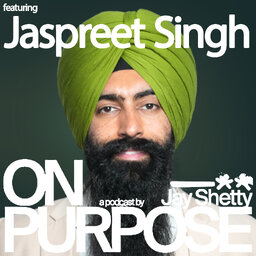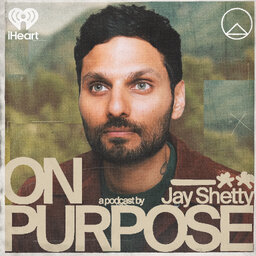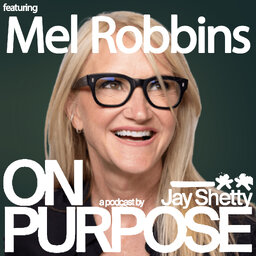5 Types Of Guilt You Are Going Through And 7 Steps To Stop Letting It Drain Your Energy
Have you ever been caught in the intricate web of guilt and shame, unable to discern their differences and the profound impact they can have on our lives?
It is in the embrace of these complexities that we embark on a journey of self-discovery, unraveling the layers of guilt and shame to illuminate the path towards growth.
In this episode, we shall delve into the depths of guilt, examining its many forms and manifestations.
Whether it's the persistent burden of past mistakes, the impact of our actions on those around us, the guilt that stems from unmet expectations and commitments, or the often overlooked sensation of privilege guilt, there are ways to overcome these emotions.
As we go through the different types, we shall emerge with newfound insights and perspectives, better equipped to navigate these complex emotions. Through understanding, reflection, and conscious action, we shall rise above guilt's shadows and embrace the light of self-forgiveness, empowerment, and transformation.
In this episode you'll learn:
The difference between guilt and shame
The different types of guilt
How to deal with the emotional burdens of guilt
How to grow from getting stuck in the past
This is a journey of emotional growth, healing, and attaining inner peace that you wouldn’t want to miss.
With Love and Gratitude,
Jay Shetty
What We Discuss:
00:00 Intro
02:37 Let’s understand the difference between shame and guilt and how to define them
05:03 What are the different types of guilt we experience in life?
12:09 The five types of guilt and how you can grow out of it
13:51 Type #1: Do you often think of a past mistake and still feel guilty about it?
19:27 Type #2: You feel guilty when someone tells you how your action made them feel bad
24:03 Type #3: The guilt of not making time for others or letting someone else down
26:46 Type #4: The guilt of not having pain, of having privilege, or having safety and security
28:12 Type #5: The survival guilt, that guilty feeling when you’ve gotten through something difficult when others didn’t
In 1 playlist(s)
On Purpose with Jay Shetty
My name is Jay Shetty, and my purpose is to make wisdom go viral. I’m fortunate to have fascinating …Social links
Follow podcast
Recent clips

Jaspreet Singh: Why Most People Stay Broke (Follow THIS 7-Step System to FINALLY Stop Living Paycheck-to-Paycheck!)
1:19:03

Feel Stuck, Confused, or Behind? Use THIS Blueprint and Completely Transform Your Life in ONE Year!
23:16

MEL ROBBINS: How to Stop People-Pleasing Without Feeling Guilty (Follow THIS Simple Rule to Set Boundaries and Stop Putting Yourself Last!)
1:15:47
 On Purpose with Jay Shetty
On Purpose with Jay Shetty